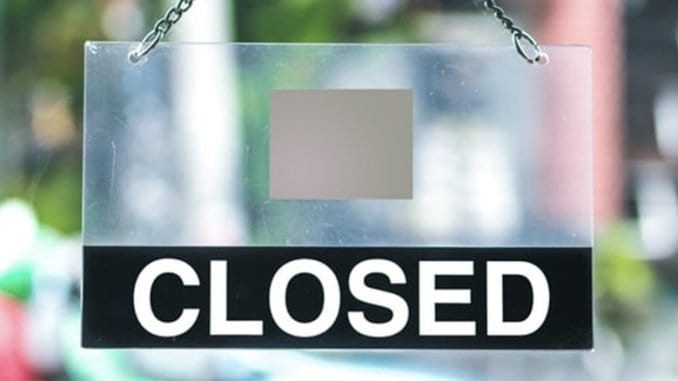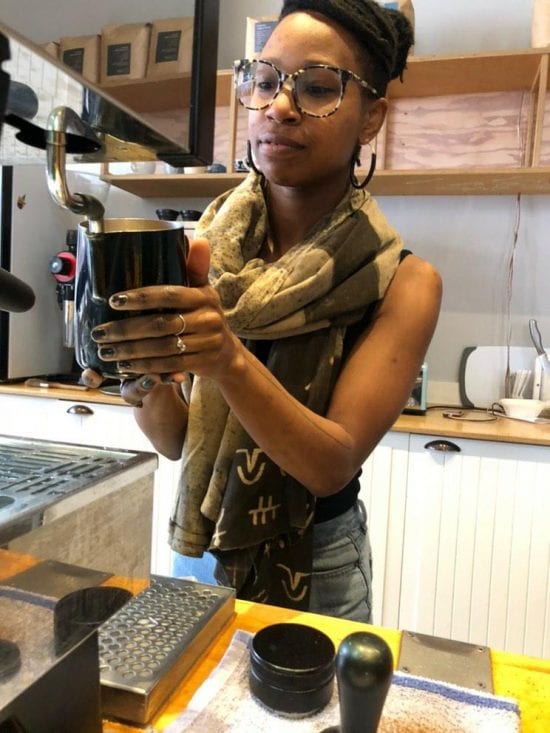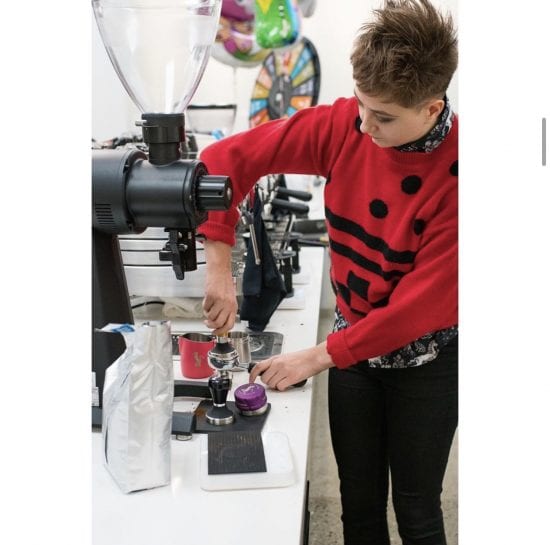
Coffee workers are forced to deal with the fallout of state-mandated coronavirus protocols.
BY MARK VAN STREEFKERK
BARISTA MAGAZINE ONLINE
Feature photo by Artem Beliaikin for Unsplash
B. Bassett is still working at Elm Coffee Roasters in Seattle, which operates on a to-go or delivery-only basis—at least for now. At the time of our interview, the state of Washington mandated a shutdown of all dine-in restaurants and cafés, but there was no shelter-in-place ordinance yet. “They gave us the option to stay working or to take time off, so we can get unemployment if needed, and I was like, ‘If I can keep my regular hours then I would stay working.’” B. says. “It’s so slow. I’m not interacting too much with people, but also I live in a studio with an 8-year-old. It’s just us two in this little room, and we need an outlet. I was just like, ‘I’ll stick it out until it gets real bad,’ which it might be soon.”

Being a barista and a single parent in one of the epicenters of the U.S. coronavirus outbreak has its own challenges. “They closed the schools, the libraries, the playgrounds, whatever. That’s been hard,” B. says. “Luckily my boss lets me bring her to work. He’s always let me bring her. He’s trying to help as much as he can if we need financial help. He’s been pretty open in giving us a heads-up on what can happen with the hours, what can happen if they do the shelter-in-place … seems like a lot of people are taking time off. One of my coworkers even left Seattle. There’s just four of us out of the two shops that have stuck around, and we’re kind of just at about 20 or 30 hours that we’re working, so we are at least able to make money. We’re just kind of putting ourselves at risk. For me, it’s more a mental thing. I just need an outlet from the house.”
B. is part of a Seattle Public Schools Facebook group that connects parents to resources like groceries, free lunches for kids, and app-based activities. B. plans on continuing to work as long as the state allows it, and if the café closes, she’ll file for unemployment.
Kae Bonaguro, a 2020 Glitter Cat competitor who advanced to the U.S. Barista Championship, is a lead barista at Collective Espresso’s Over-the-Rhine location in Cincinnati. They remember the weeks leading up to Ohio’s mandated takeout-only rule: “We actually made a move towards takeaway before the governor mandated it. Honestly, I was mostly concerned about transmission. Although I’m not a high-risk individual, I serve high-risk individuals on a daily basis,” they say. “I was also really concerned with how to support the staff through the cut in hours. We all rely on wages and tips for our livelihoods, and individuals were going from five shifts a week to three at max, with very low sales and almost no tips.”

Collective Espresso closed indefinitely only a few days after they switched to takeout-only. The shop didn’t offer paid time off or sick pay, common for most Cincinnati cafés. Kae started a virtual tip jar for baristas at the café, and in one week raised enough to give each barista about $100, which “is less than half of what we usually took home per week in tips, and doesn’t offset the loss of wages at all. Unfortunately, I don’t qualify for unemployment through the state of Ohio, so I haven’t received any relief/help from the state government either.”
While Kae considers themselves lucky with a secure housing situation, and access to food, they’re worried about the rest of their coffee community. “There are a lot of rumors about which cafés will reopen, and which won’t. It’s scary and overwhelming. So I don’t know what’s next for me. I really don’t. And that’s really, really scary.”
With an estimated 37 million low-wage jobs at risk right now, B. and Kae’s experiences are more common than not. If you are able, consider pitching in to one of the virtual tip jars at gofundbean.com or tipjardatabase.coffee.

ABOUT THE AUTHOR
Mark Van Streefkerk is Barista Magazine’s social media content developer and a frequent contributor. He is also a freelance writer, social media manager, and novelist based out of Seattle. If Mark isn’t writing, he’s probably biking to his favorite vegan restaurant. Find out more on his website.
